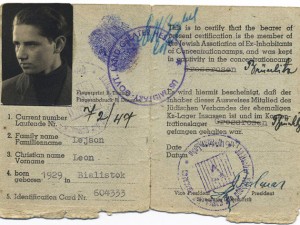 May is National Family Reading Month, which is designed to encourage more children to read with their families. This initiative challenges participants to read for fifteen minutes daily with their children.
May is National Family Reading Month, which is designed to encourage more children to read with their families. This initiative challenges participants to read for fifteen minutes daily with their children.
You need only to have spent five minutes with me to know that I am a huge proponent of family reading, well past the age of independent literacy. Reading a book with your child, whatever their age, provides an opportunity to explore new worlds together, share meaningful discussions, and to simply carve out a few peaceful moments with one another, away from the normally hectic routine.
Throughout May, this column will be focusing on books that can be enjoyed together. So, let me introduce you to this month’s Under Cover Book Club pick, “The Boy on the Wooden Box: How the Impossible Became Possible…on Schindler’s List,” a memoir by Leon Leyson.
Born Leib Lejzon, the author, who would later modify his name, started life in Narewka, Poland near Bialystok, in 1929. His early years, spent in a village near a forest, which he referred to as idyllic, belied the course his life would take just a few short years later.
After the Nazi invasion in 1939, Leon watched his gentile friends seemingly develop a hatred for him and his people, as the freedoms he and his family once enjoyed disappeared one by one.
He struggled to understand what had changed to make the boys he once played in the streets with now spit as he walked by, and shout anti-Semitic remarks at him.
His parents, burdened with an adult understanding of the situation, did their best to shield their children from the most horrific developments, but as Nazi influence grew, they were no longer able to protect Leon and his siblings from their new reality.
In fact, as the family was sent to the Krakow ghetto, and subsequently, Plaszow labor camp, only one thing proved capable of offering the family protection: a man named Oskar Schindler.
In the prologue to the book, Leyson says, “I am an unlikely survivor of the Holocaust. I had so much going against me, and almost nothing for me. I was just a boy; I had no connections; I had no skills. But I had one factor in my favor that trumped everything else: Oskar Schindler thought my life had value.”
skills. But I had one factor in my favor that trumped everything else: Oskar Schindler thought my life had value.”
As the youngest survivor of the now famous “Schindler’s List,” Leyson was spared from certain death by being declared a “necessary” and skilled laborer by the industrialist responsible for saving over 1100 Jews.
The book gets its name from the fact that Leon was so small, he could not even reach the equipment he was a so-called “skilled” user of, without first climbing on an overturned crate.
For many years after the war, Leon kept quiet about his story. He immigrated to America, became a teacher, and a father, and carried on with his life.
After the release of the film “Schindler’s List” in 1993, however, he felt compelled to share his story. He became a sought after speaker, sharing his story all across the U.S. and Canada, something he never accepted payment for.
This book recounts, in a manner appropriate for older middle grade readers, his incredible story of survival in an unthinkable time, and his amazing resilience afterwards.
Despite the horrors he experienced, including the loss of beloved family members, Leyson refused to let these sadnesses define him. In 1997, he told the Portland Oregonian, “The truth is, I did not live my life in the shadow of the Holocaust. I did not give my children a legacy of fear. I gave them a legacy of freedom.”
I read this book together with my twelve-year-old, and it was a moving and meaningful experience for both of us. I hope that it will be for you as well.
Edie Crabtree is an avid reader and the mother of three active boys. She can be reached at crabmom3@gmail.com.




